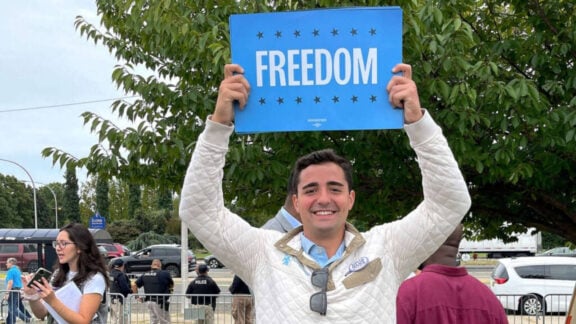A cure for secondary breast cancer – otherwise know as metastatic or advanced – has not yet been found, but recent advances in treatment show it can be controlled.
Secondary breast cancer develops when cells from the original cancer in the breast travel to other parts of the body through the blood or lymphatic system and develop into a new cancer. This new cancer is still known as breast cancer even though it is in a different part of the body.
Treatments are continually improving and women often live for many years, however, expenses and complex procedures can take their toll on the patients, their families and their carers.
A significant percentage of breast cancer patients in Australia is of migrant background in which case, language can be a problem, researcher Spiri Tsintziras notes.
For this reason Breast Cancer Network Australia (BCNA) plans to develop resources translated into Greek and Chinese for women affected by secondary breast cancer and their families.
To ensure the information is relevant and culturally appropriate, BCNA is conducting focus groups at the Australian Greek Welfare Society with female patients and their support persons.
“I am helping BCNA create information for Greek women with secondary breast cancer, whose breast cancer has spread to other parts of the body,” Mrs Tsintziras tells Neos Kosmos.
“As you may know, this is a very difficult subject for our community to talk about, and there is no information at all for this group.”
This focus group is part of a research study conducted by the Cancer Network in collaboration with the University of Sydney in order to determine the needs of secondary cancer victims.
“We want to learn from the patients’ experience and gather information to support Greek people affected by secondary breast cancer in the future,” she explains.
“Essentially we bring women together to talk about their predicament so we can identify what sort of support they need.”
BCNA conducted a similar survey with women of ethnic background two years ago, creating resources and support groups for patients at the early stages of cancer. Similarly, the Network wishes to create resources for women with more progressed stages of cancer.
“Research focus groups are important for the women who are currently suffering but also for the women who might find themselves in the same predicament down the track.
“We want to bring these people and their carers together at the table and come up with effective action plans to help them get through this journey,” Mrs Tsintziras continues.
“We need all the support and information we can get from the Greek community.”
The focus groups are an ongoing program of the BCNA. Information and support is also available via phone.
For more details and to book, contact Australian Greek Welfare Society – Tania Samartza on 9388 9998 or email tanias@agws.com.au
When: Tuesday 7 June, 10.00 am-1.00 pm.
Where: Australian Greek Welfare Society, 7 Union Street, Brunswick, Melbourne, VIC








